Choosing the Right Hybrid or Electric Vehicle
The experts at our Auto Test Center have created this guide to help you choose a reliable and cost-effective hybrid, plug-in hybrid, or electric vehicle that fits your needs. We’ll cover the differences between these types of vehicles, their pros and cons, and what you need to know about charging.
What’s the Difference Between a Hybrid, PHEV, and EV?
- A hybrid combines a gas engine, a small battery, and an electric motor. It doesn’t need to be plugged in.
- A PHEV (plug-in hybrid electric vehicle) can be plugged in for 20 to 40 miles of electric-only range before the gas engine kicks in to extend the range for an additional 300 to 500 miles.
- An EV (electric vehicle) has a large battery and an electric motor, never uses gas, and has no tailpipe emissions.
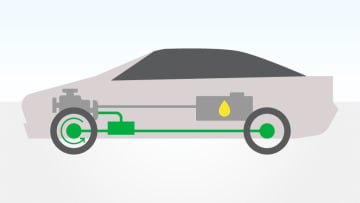
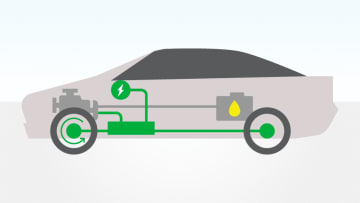
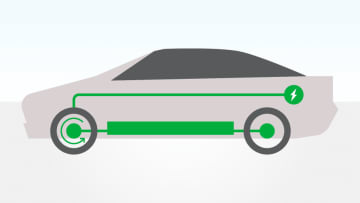
Will a Hybrid, PHEV, or EV Save Me Money?
See how gas and electricity costs will add up over five years based on vehicle type. Our car comparison tool provides calculations for specific models, and our incentive finder helps you see what savings you might be eligible for.
How Does CR Test and Rate Hybrids, PHEVs, and EVs?
We buy all the cars we test and put them through their paces at our 327-acre Auto Test Center. For hybrids and PHEVs, we do fuel economy tests that reflect real-world driving, while EVs get unique evaluations, including highway range testing and charging time measurements.
Charging Essentials
- EVs have one of three kinds of plugs: NACS (North American Charging Standard), SAE/CCS combo plug, or CHAdeMO.
- PHEVs can be charged at Level 2 outlets and regular household 120V outlets using a mobile charging cable.
- Installing a Level 2 charger at home can cost between $500 to $1,200 for the work, plus $500 to $700 for the wall-mounted charging unit.
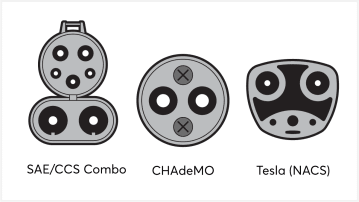
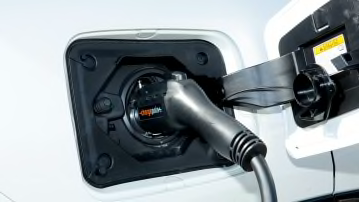
Are Hybrids, PHEVs, and EVs Reliable?
- Hybrids are extremely reliable, similar to gas-only vehicles.
- PHEVs can be less reliable than gas-only cars on average, but reliable brands tend to make trustworthy PHEVs.
- EVs have more problems than gas-only cars or hybrids, but many issues represent growing pains from new technologies.
More Answers to Your Questions
We have more information on hybrids, PHEVs, and EVs, including answers to commonly asked questions about tax credits, range, and maintenance costs.


